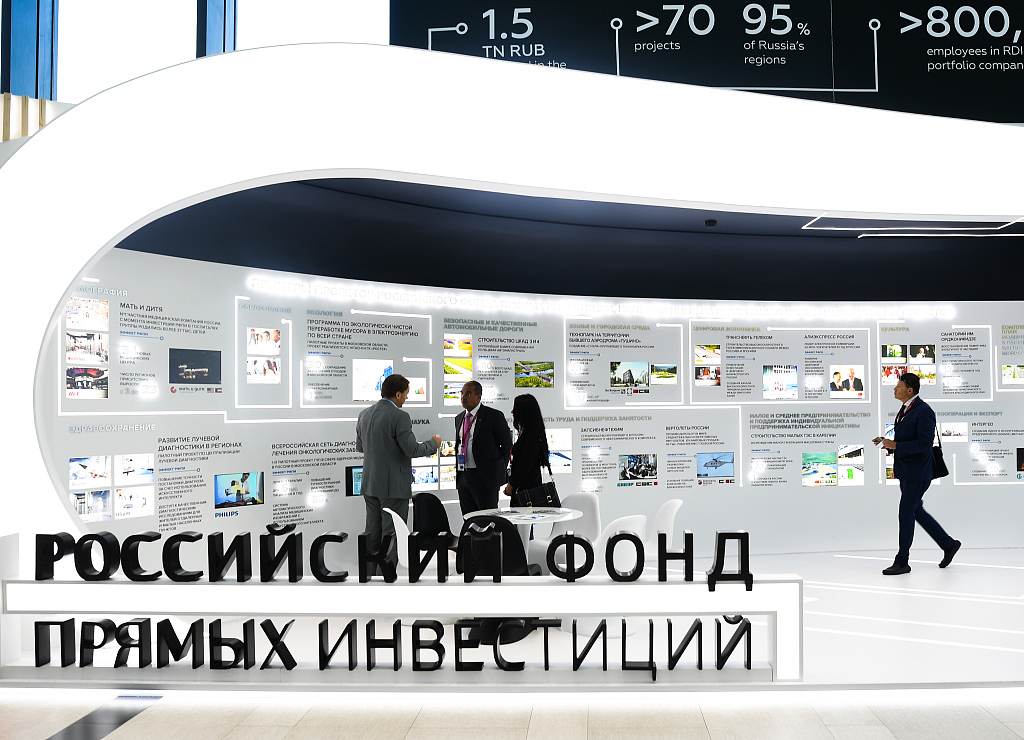

A stand during the St. Petersburg International Economic Forum (SPIEF) at the ExpoForum Convention and Exhibition Center in St. Petersburg, Russia, June 8, 2019. /VCG Photo
Peter the Great established the city of St. Petersburg after his name 300 years ago because he wanted to get the best that Europe had to offer. His idea later turned St. Petersburg into a great city.
Some 180 years later, Kang Youwei, a reformist-minded intellectual from China's last dynasty, the Qing Dynasty (1644-1911), told the last emperor of China that they should reform and try to see Peter the Great's vision – borrowing the best ideas from other places. But the emperor didn't listen, and that’s why the dynasty eventually failed.
This is an example of how listening to one another and sharing ideas can lead to a better existence for us all.
"But unfortunately, in this particular historical time, from the West's point of view, they feel they are more superior, so they cannot treat others equally if the West sees them as being inferior," said Peter Lavelle, the host of Russia Today.
Lavelle said the world's conflict is now growing into a civilization conflict, because the West is always dealing with the internal Western dynamics for global domination.
"We have never had this moment in the modern time when we have a completely different rising power that is not from the inter-Western world. This (now) is different... I watch how China is being portrayed in the West; it doesn't bode well for the future," Lavelle added.
Xu Sitao, chief economist at Deloitte China, believes that the difference between today's China and the past is the size.
"Most of China's industries account for half of the global economy output. The intensity of growth has not been seen before. I think it’s going to take some time for many countries to adjust. Russia is struggling to get economic growth of even 2 percent, but for China, we easily have 5 percent," said Xu.
Meanwhile, there are certain things China can learn from Russia. For example, emphasizing labor rights and healthcare.
"If we have developed some technology, we just open it (up) and show another country. We don't think we will lose the technology because of the multiplication effect. We can get a lot of new goods for ourselves, we don't really believe that we should struggle for the rights or for the product," said Panov Dmitry, a member of the General Council of Business Russia and the country's business ambassador.
After all, the market has changed a lot, the model decades ago is not comparable to the situation today.
"Maybe the Chinese model is the new economic model. We should learn this model and maybe find good dividends for each other," Dmitry added.

Copyright © 2018 CGTN. Beijing ICP prepared NO.16065310-3
Copyright © 2018 CGTN. Beijing ICP prepared NO.16065310-3